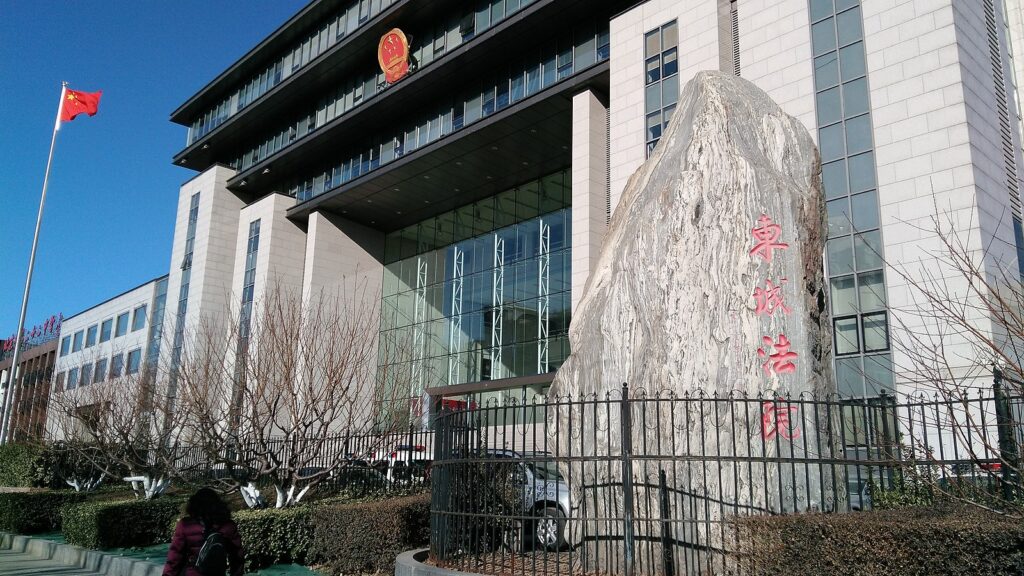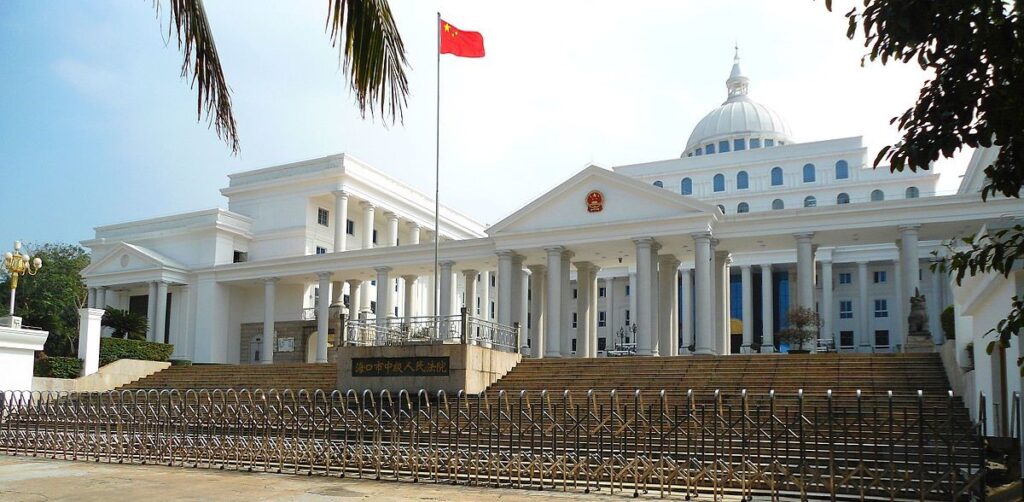A new paper by Lei Chen, Zhuang Liu and Yingmao Tang

China runs the largest online program for publicizing judicial decisions in the world. The mass publicity of court decisions in China, this article (draft here) argues, is part of the broader trend of the Chinese judiciary becoming increasingly centralized. The mass publication of court decisions in China seems puzzling: Disclosure of government information is often linked to an aspiration for political participation, which contributes to accountability and creates an obligation for responsive government. As a style of governance, transparency is usually associated with democracies, and few authoritarian states show much interest in government transparency.
In this article, the authors explain the reform towards greater transparency of the Chinese judiciary in a principal-agent theoretical framework and contextualize it within strategic moves of the central and the local governments in this setting. Previous studies of the political system in China have documented a deeply rooted agency problem between the central government (the principal) and local courts (provincial courts and courts at the lower levels – the agents), often discussed as “local protectionism”: The primary goal of the Supreme People’s Court is that centrally stipulated laws are applied in a unified way for the entire country, however, such application may conflict with local interests and social stability in local communities. Hence, in practice, courts often function as a local apparatus that protects local interests. This tension between the central government and the SPC on the one hand and local governments and respective courts on the other is a result of the structure of the Chinese political system. For example, local courts’ finance and personnel are controlled by local governments. While it is on the reform agenda to make the high court at the provincial level control and manage the finances of all courts in the province, control over personnel remains with the local governments. More importantly, information asymmetry embedded in the multiple-layered government structure and thereby the inability for the centre to monitor the local.
Responding to this dilemma, the Supreme People’s Court carries out a reform towards transparency. The mass publicity of court decisions, this article contends, is a top-down effort to address the principal-agent problem. By means of establishing a centralized judicial data collection system, the Supreme People’s Court can more directly control the information reporting process within the judicial hierarchy and reduce information asymmetry. By making mass local court decisions publicly available on a centralized venue, it attempts to curb wrongdoing and improve decision consistency and quality in local courts through public oversight. Together, the transparency reform helps the centre (i.e., the SPC) rein in local courts.
As in most principal-agent settings, agents, here local courts, responded strategically, by disclosing fewer decisions than required. After the Supreme People’s Court mandated judicial decision disclosure for courts in 2014, disclosure rates remained low, at 39.4%, 44.5%, and 47.9% in 2014, 2015, and 2016, respectively, with strong regional variations. For example, the disclosure rate of Tianjin in 2016 was about 71%, while that of Hainan was only 16%.
In the existing personnel arrangement, local governments control the appointment and promotion of judges. Yet an increasing number of provincial high courts are now presided over by judges or
officials who have work experience at the SPC or other agencies of the central government. Our data shows that judicial decision disclosure rates increased at courts that were headed by cadres with work experience in the central government. We find that the presence of these cadres is associated with more than a 10 percent higher disclosure rate of judicial decisions by the respective court. This finding suggests that the dispatched judicial cadres were quite successful in promoting transparency of the courts in their jurisdictions according to central policy – just as they are in promoting other central policies.
The transparency reform is to be contextualized within other reforms toward a more centralized judicial sector in China. Local protectionism of courts, that is, courts serving local interests rather than following the law, is well documented in the literature. The requirement that all judgements be uploaded to the centralized website enables the SPC to supervise local courts’ behaviour not only through public oversight but also through steering legal development in a certain direction, and aligning local judicial decisions with its own policy goals. For example, the SPC can easily search for local judgements and check whether their decisions are consistent with judicial interpretations and guiding cases.
The article Judicial Transparency as Judicial Centralization: Mass Publicity of Court Decisions in China was published in the Journal of Contemporary China. A draft version is available here.
Lei Chen is Chair of International Arbitration and Chinese Law at Durham Law School, UK. He has been elected as a Titular Member of the International Academy of Comparative Law and a Fellow of the European Law Institute.
Zhuang Liu is an Associate Professor of Law at the University of Hong Kong. His research interests include the role of the courts and judicial behaviour, as well as law and development. His work has appeared in several leading academic journals specialising in law, economics, and China studies.
Yingmao Tang is an Associate Professor at Peking University Law School. His research interests include international finance regulation, investment law and the Chinese judicial system. His recent work focuses on opening China’s capital markets, online judicial transparency and big data & computational legal studies.


